50+ SAMPLE Marketing Audit
-
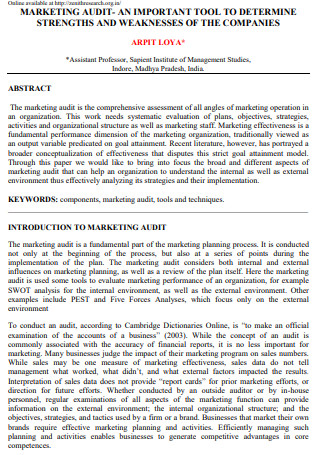
Marketing Audit of Company
download now -
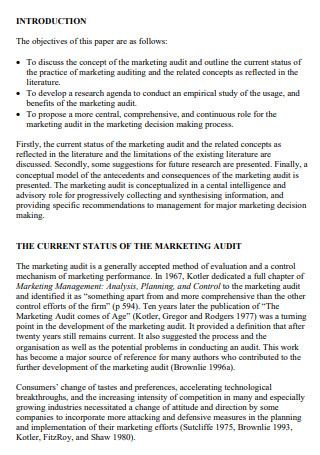
Marketing Audit And Business Performance
download now -
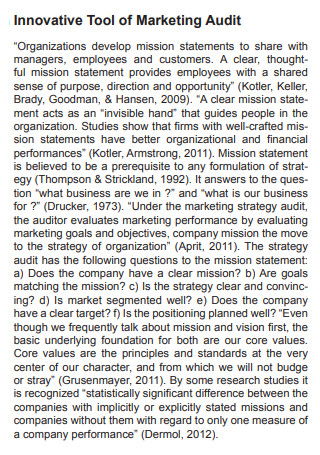
Innovative Tool of Marketing Audit
download now -
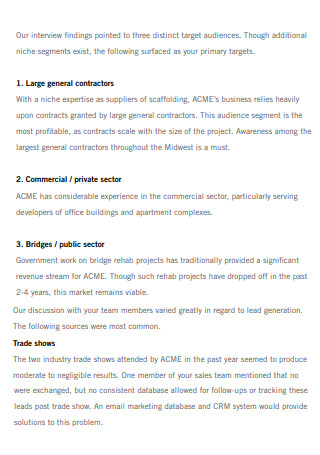
Web Marketing Audit
download now -
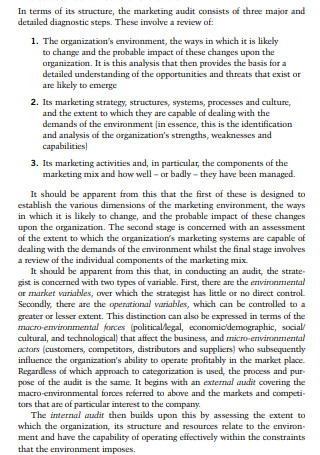
Marketing Auditing and the Analysis of Capability
download now -
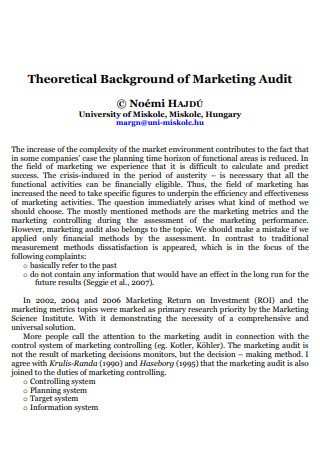
Theoretical Background of Marketing Audit
download now -
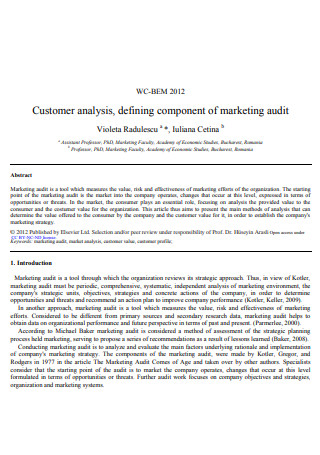
Customer Analysis of Marketing Audit
download now -
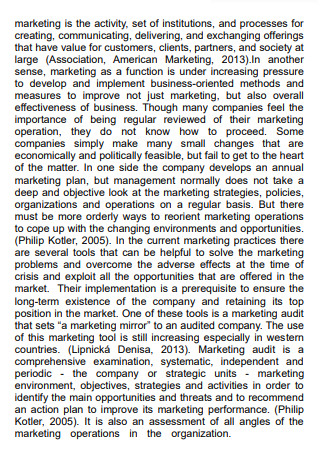
Marketing Audit Systematic And Comprehensive Marketing Examination
download now -
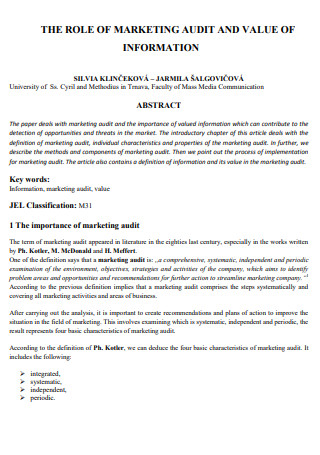
Role of Marketing Audit
download now -
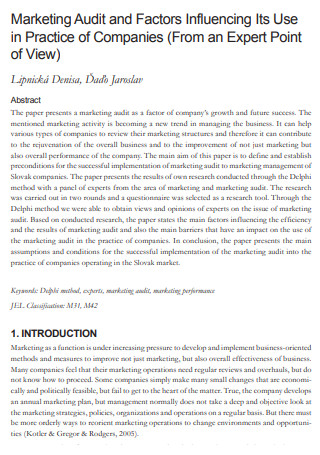
Marketing Audit and Factors Influencing
download now -
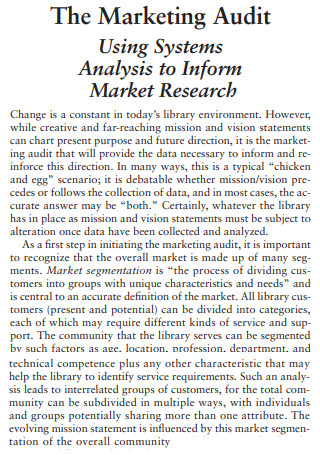
Marketing Audit
download now -
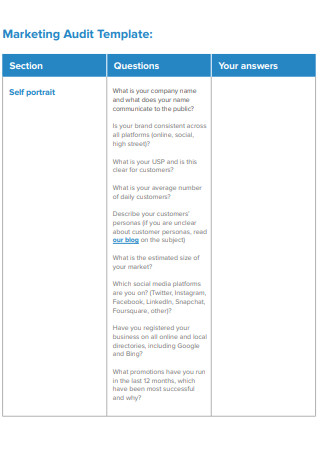
Marketing Audit Template
download now -
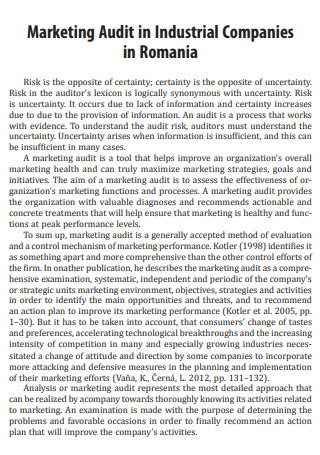
Marketing Audit in Industrial Companies
download now -
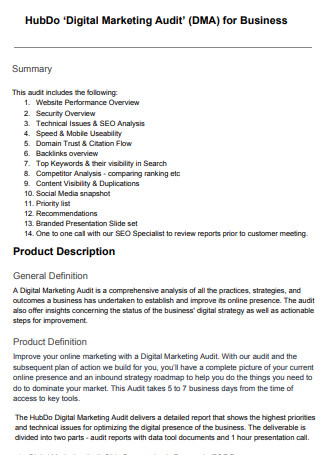
Digital Marketing Audit for Business
download now -
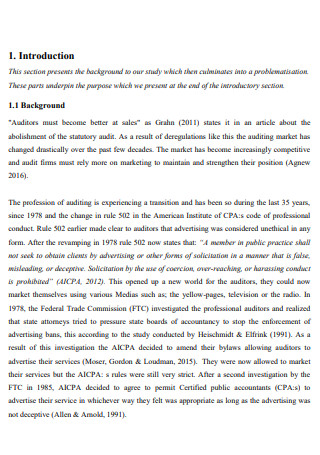
Increased Use of Marketing Audit Industry
download now -
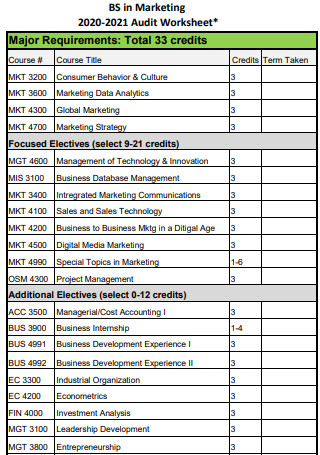
Marketing Audit Worksheet
download now -
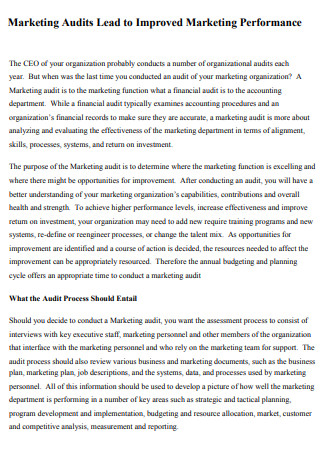
Marketing Audits Lead to Improved Marketing Performance
download now -
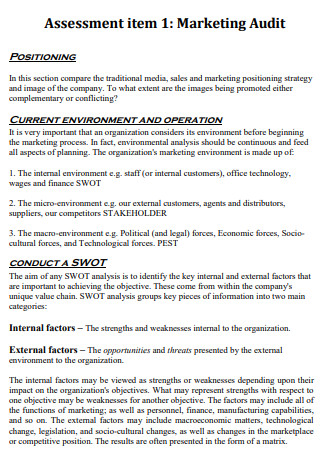
Marketing Audits Assessment
download now -
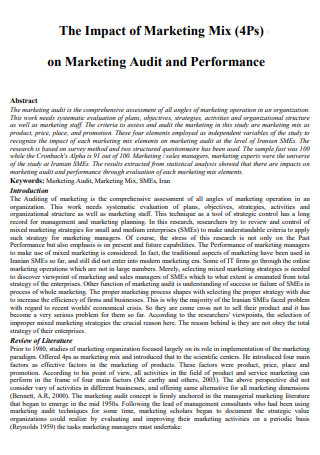
Marketing Audit and Performance
download now -
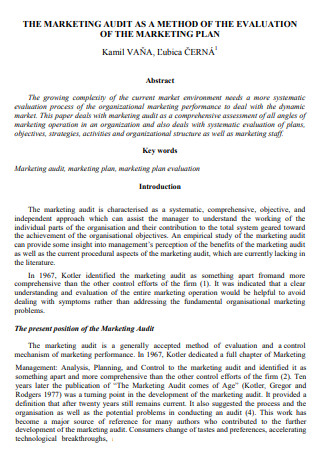
Marketing Audit Evaluation
download now -
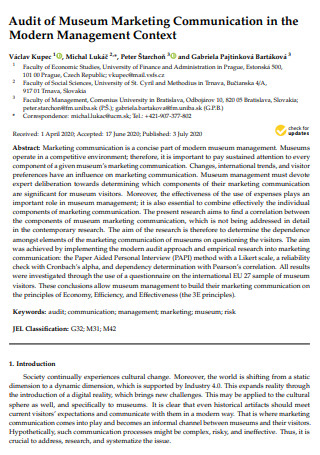
Marketing Audit Communication
download now -
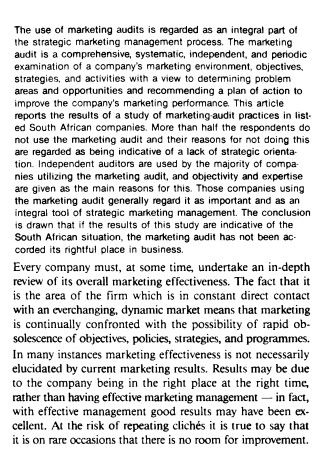
Marketing Audit Example
download now -
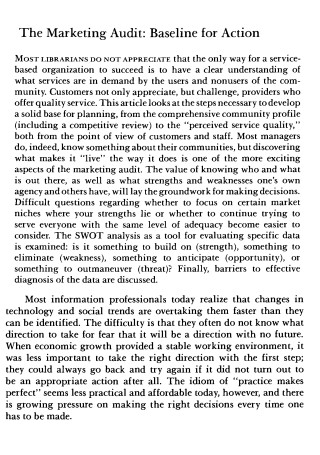
Marketing Audit Baseline for Actions
download now -
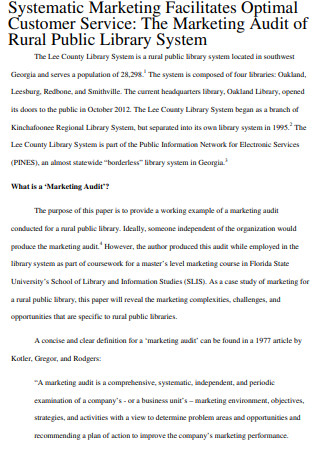
Marketing Audit of Rural Public Library System
download now -

Marketing Audit for Jump the Moon Foundation
download now -
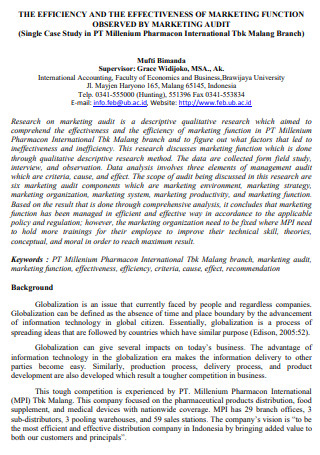
Marketing Audit Research
download now -
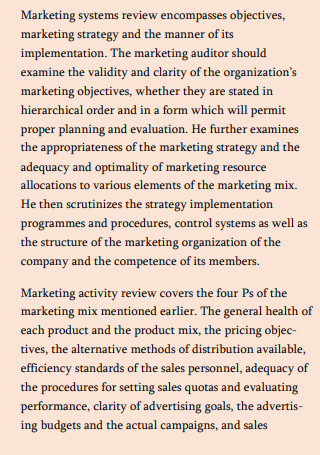
Marketing Audit Tool
download now -
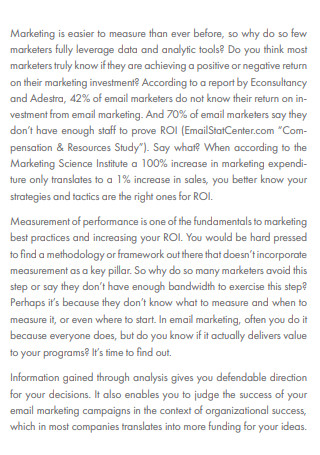
Email Marketing Audit
download now -
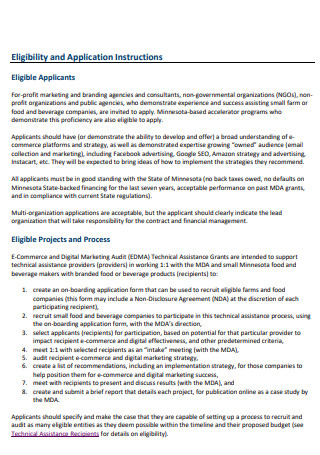
E-Commerce And Digital Marketing Audit
download now -
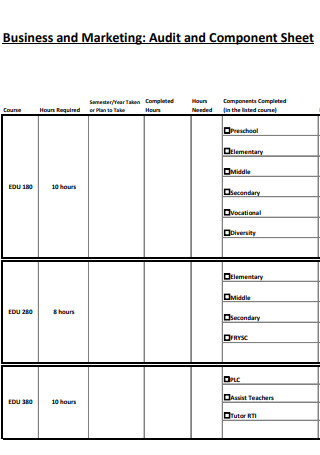
Business And Marketing Audit
download now -
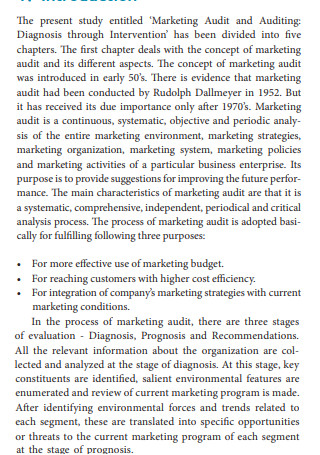
Marketing Audit and Auditing
download now -
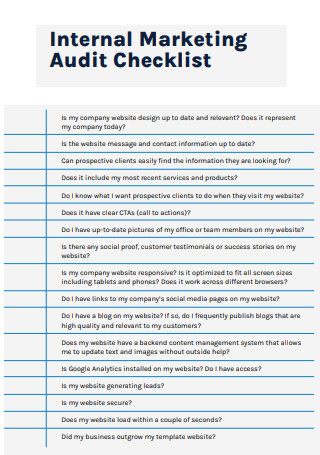
Internal Marketing Audit Checklist
download now -
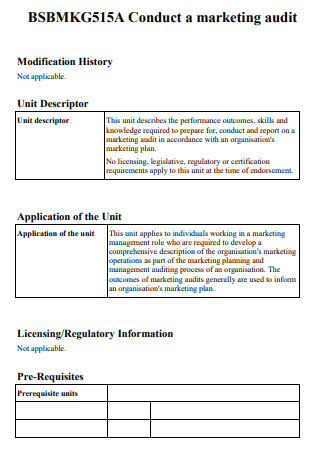
Conducting Marketing Audit
download now -
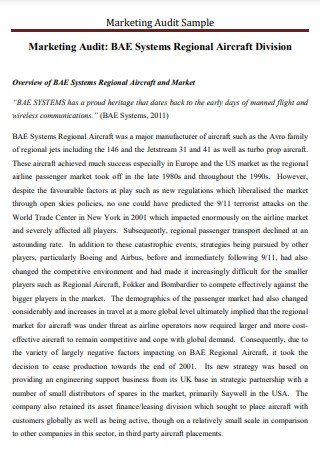
Marketing Audit Systems Regional Aircraft Division
download now -
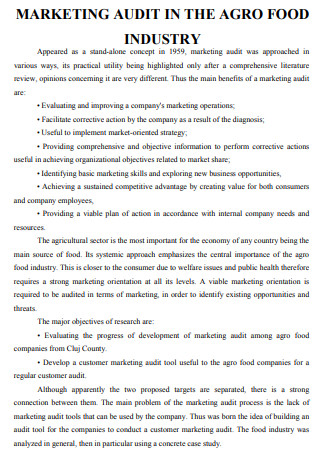
Marketing Audit in Agro Food Industry
download now -
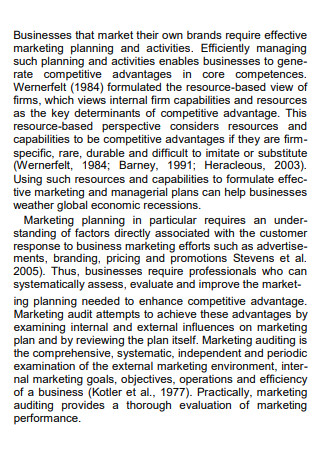
Hierarchical Cognition of Marketing Audit
download now -
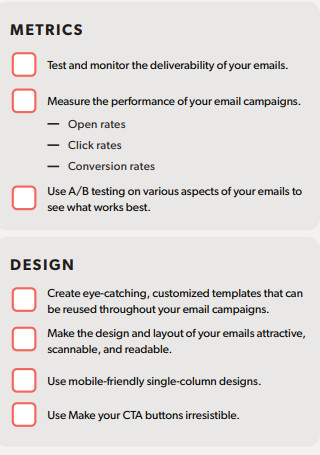
Email Marketing Audit Checklist
download now -
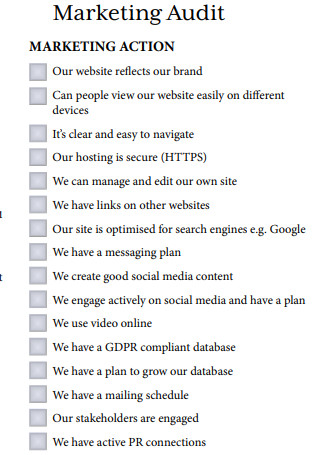
General Marketing Audit
download now -
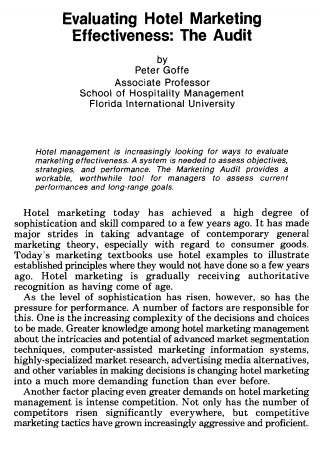
Evaluating Hotel Marketing Audit
download now -
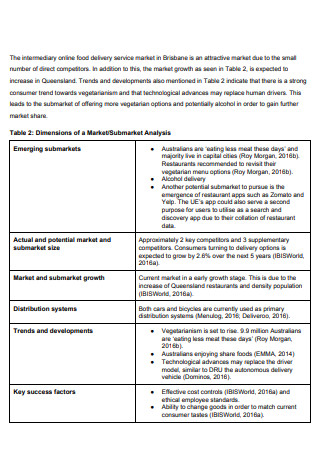
Strategic Marketing Audit
download now -
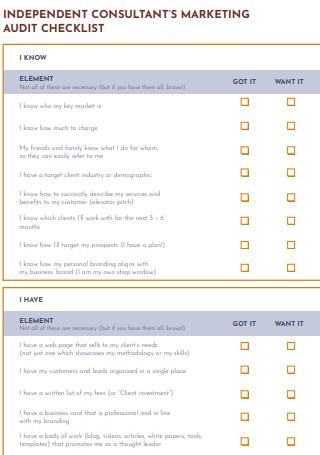
Independent Consultant Marketing Audit Checklist
download now -
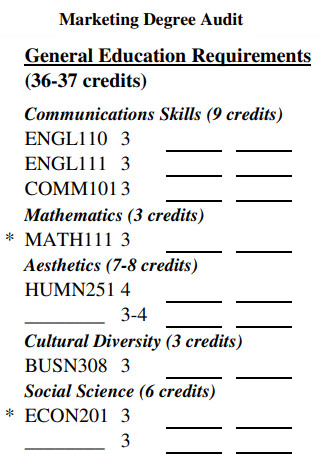
Marketing Degree Audit
download now -
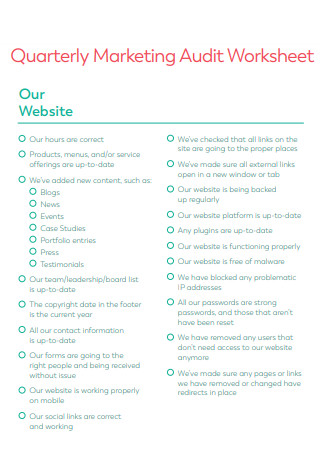
Quarterly Marketing Audit Worksheet
download now -
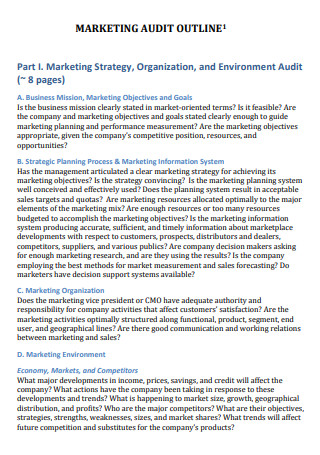
Marketing Audit Online
download now -
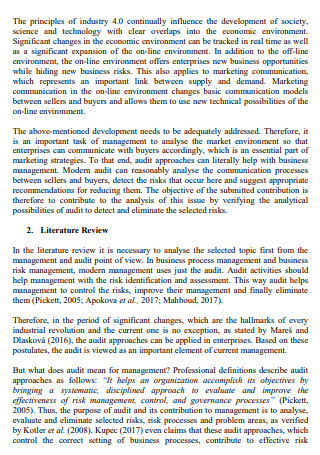
Marketing Communication Risk Audit
download now -
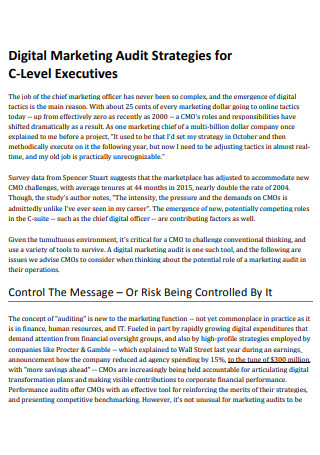
Digital Marketing Audit Strategies for C Level Executives
download now -
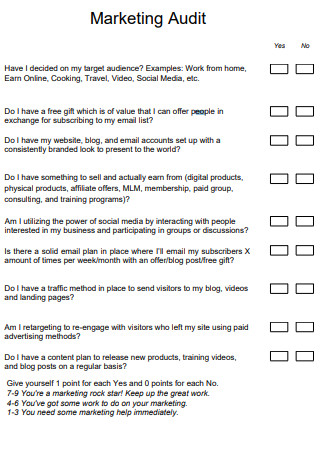
Sample Marketing Audit Checklist
download now -
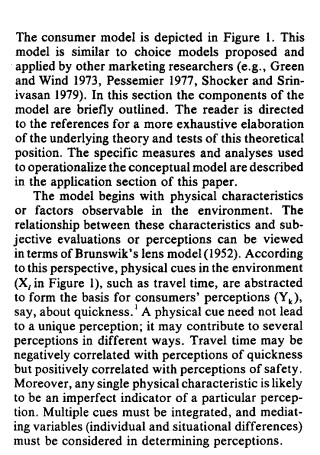
Marketing Audit Application
download now -
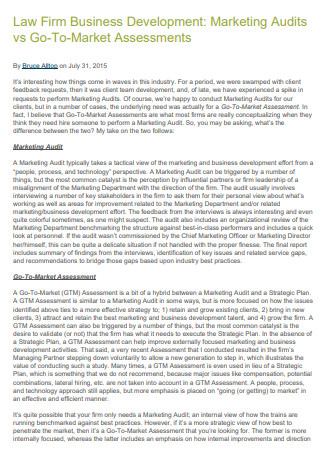
Business Development Marketing Audit
download now -
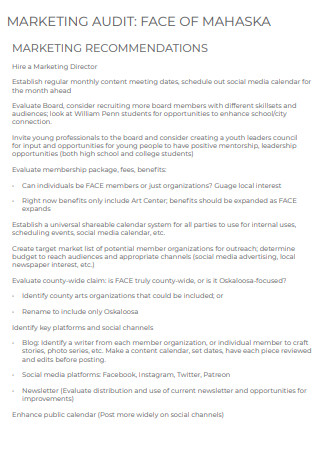
Marketing Audit Recommendations
download now -
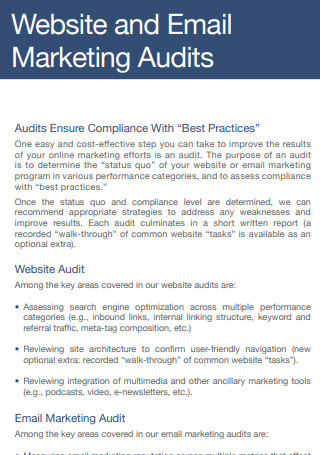
Website and Email Marketing Audit
download now
FREE Marketing Audit s to Download
50+ SAMPLE Marketing Audit
a Marketing Audit?
Benefits of a Marketing Audit
Components of a Marketing Audit
How To Conduct a Marketing Audit
FAQs
What marketing strategy do you have in place?
Which component of a marketing audit is the most critical?
What are the risks associated with direct marketing?
What Is a Marketing Audit?
A marketing audit is a comprehensive evaluation of how a corporation markets itself. Marketing audits will demonstrate to business owners and marketing employees where marketing efforts are successful. They will also highlight where marketing efforts fall short, allowing for required improvements to be made to ensure your firm thrives. Businesses are like living, breathing organisms, and marketing is the oxygen they take in. A significant amount of preparation and planning is required to keep your marketing in shape, referred to as a marketing plan. Before producing a marketing strategy, it is necessary to assess the business’s strengths and shortcomings. Also, a marketing audit is required to ascertain your current marketing state. According to statistics, the US Small Business Administration suggests spending 7 to 8% of gross revenue on marketing and promotion if your annual sales are less than $5 million and your net profit margin – after all costs – is between 10% and 12%. While marketing audits may sound frightening, they are beneficial to your business.
Benefits of a Marketing Audit
When you have a marketing campaign with an experienced team, strong SEO performance, and optimized advertisements, it’s tempting to believe that everything is working correctly. Unfortunately, this approach can expose your brand to squandered advertising dollars, duplicated efforts, and underperforming campaigns. Fortunately, there is a straightforward solution to address this: do a marketing audit. A marketing audit is a comprehensive examination of your digital marketing efforts, from content and tactics to advertisements and website copy and everything in between. It’s a method for ensuring that your practices align with your objectives and key performance indicators. If you’re curious, here are some of its advantages.
Components of a Marketing Audit
Marketing Environment Audit
Marketing Environment Audits are split into two categories: Micro Environment and Macro Environment, including Economic, Social, Technological, Cultural, Demographic, Political, and Environmental Audits. The auditor should consider the consumers’ demographic, age, and gender characteristics for whom these products were manufactured.
Marketing Strategy Audit
It includes the firm’s purpose, vision, objectives, and goals, all of which must be evaluated by the auditor to see whether the firm’s operations are consistent with its mission and objectives.
Marketing Organization Audit
As we all know, hierarchy plays a vital role in the reporting system and whether or not there is an impact on an organization’s structure. As a result, the reporting parameters should be examined, i.e., with a formal arrangement, functional layout, and so on, to see if the firm follows a precise organizational structure and is efficient.
Marketing System Audit
Marketing System Audit is the information system characterized as gathering information from retailers and consumers. There are a plethora of information system characteristics or reporting systems. Thus, whether or not the reporting system is adequately defined should also be verified. The planning system in Marketing System Audit refers to how marketing planning was carried out precisely and the points that should be regarded and checked.
Marketing Productivity Audit
It is financial analysis, a cost-benefit analysis in which profitability analysis describes the amount of money spent on marketing and the amount of profit earned from that activity. Whether or whether cost-effective research has been conducted while conducting a marketing operation should also be verified.
Marketing Functions Audit
Marketing functions audits cover the four p’s, namely product, price, place, and promotion; consequently, strategies audits covering product, pricing, distribution, and promotional strategies should be conducted. Salesforce is a significant field; additionally, an individual’s capacity should be evaluated using Marketing Audit. Thus, these are some of the main perspectives or components of the marketing audit; a firm can determine which elements to eliminate based on the type of firm or which characteristics to include based on the firm’s requirements.
How To Conduct a Marketing Audit
Now that you know some of the components of a marketing audit, you can begin conducting internal reviews. Remember, an efficient marketing audit is not an opportunity to congratulate yourself on a well-executed strategy that adheres to your brand promise. It’s also not a technique for you to punish yourself for everything you’ve done wrong up to this point. Understanding how to conduct a marketing audit is paying close attention to the data you get from daily consumer interactions and utilizing it to your benefit. The following five phases will assist you in simplifying your marketing audit.
Step 1: Make a list of marketing assets.
Before you can begin filtering through your marketing initiatives to determine which ones are effective, it’s critical to compile a comprehensive list of all marketing efforts that will be analyzed throughout this audit. If you’re performing a complete marketing audit, you’ll need to gather all of your marketing materials, from email newsletters to social media announcements and even website blog entries. To keep your labor to a minimum, focus on items from the last six months or so. This should provide you with sufficient data without overburdening your team.
Step 2: Align the audit with your objectives.
Following that, you’ll need a baseline against which to gauge the success of your efforts. In other words, you need to understand what you’re attempting to accomplish and how your marketing activities are progressing toward that goal. Consider your present business objectives. Are you want to increase brand exposure, engage your audience, or increase sales? Once you’ve established your dreams, you may begin asking yourself more specific questions throughout the audit.
Step 3: Collect information about your marketing performance.
Collect as much data about the marketing you’re auditing. Specific channels will have more easily quantifiable stats than others. Determine a method for calculating the return on investment for each primary marketing channel your marketing audit will cover. Bear in mind that sales are not the only type of conversion that adds value to your organization. While an efficient marketing campaign may not result in a significant increase in direct sales, it may result in increased word-of-mouth marketing and social media presence, which increases your brand’s reach.
Step 4: Contrast your results with your objectives.
You can then assess whether the results justify continuing or perhaps increasing your marketing spend in a specific location. This section is perplexing. It’s natural to believe that a marketing strategy that falls short of your objectives is failing. However, there is a possibility that you are setting your sights too high. To verify that your marketing efforts are not unreasonable, compare the results of your campaigns to those of comparable competitors in your space. While you may not track every aspect of your competitors, such as their binding rate, you may derive certain judgments from the data gathered during a competitor study.
Step 5: Adapt and Improve
Now you’re prepared to make a significant improvement to your marketing plan. With the results of your marketing audit in hand, make adjustments to increase your return on investment and streamline your advertising spend. Bear in mind that you should not undertake an audit if you are unwilling to act. This is your opportunity to ensure that you make the most use of your resources and time — both online and offline. Collaborate with your marketing and sales teams, as well as any marketing audit agencies you have access to build an actionable strategy for utilizing the data you’ve gathered.
FAQs
What marketing strategy do you have in place?
The marketing strategy outlines how a business will promote its items to clients. The plan specifies the target market, the brand’s or product’s value proposition, the campaigns launched, and the metrics used to measure the efficacy of marketing initiatives.
Which component of a marketing audit is the most critical?
The most critical aspect of a marketing audit is determining the appropriate KPIs to track. Regular audits will always provide a more detailed picture of effectiveness, but this requires knowledge of the most influential metrics to monitor.
What are the risks associated with direct marketing?
One marketing risk is missing out on a more profitable market segment by targeting the wrong type of customer. A business might alienate customers if it defines the market and its demands incorrectly. Another danger is pursuing consumers that are not a good fit for the company’s product or service strengths.
Since business marketing is unique, you may require a variety of audit styles and stages to advertise your firm effectively. They provide instructions on the key aspects you should cover in the auditing process with the marketing audit templates. This guarantees that you capture all critical facts by thoroughly analyzing the market environment and marketing tactics. The campaign’s resources, the team’s performance, and the utilization of allocated funds are all considered. The marketing budget example also plays a significant role in marketing, as it enables you to determine the cost of marketing your firm to the globe. Any form of marketing plan procedure requires an audit. The audit is undertaken at the start and several points throughout the implementation plan. It considers both internal and external factors that may affect the marketing plan. Audits enable you to identify opportunities and identify shortcomings in your marketing strategy, allowing you to make necessary adjustments to your marketing plan.
